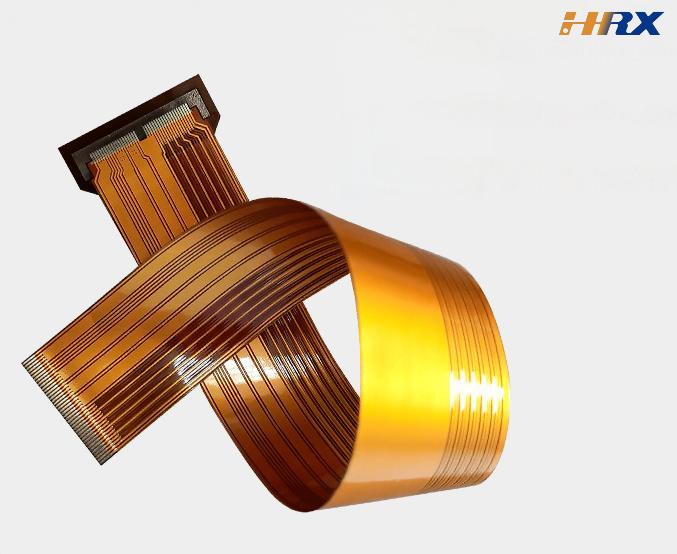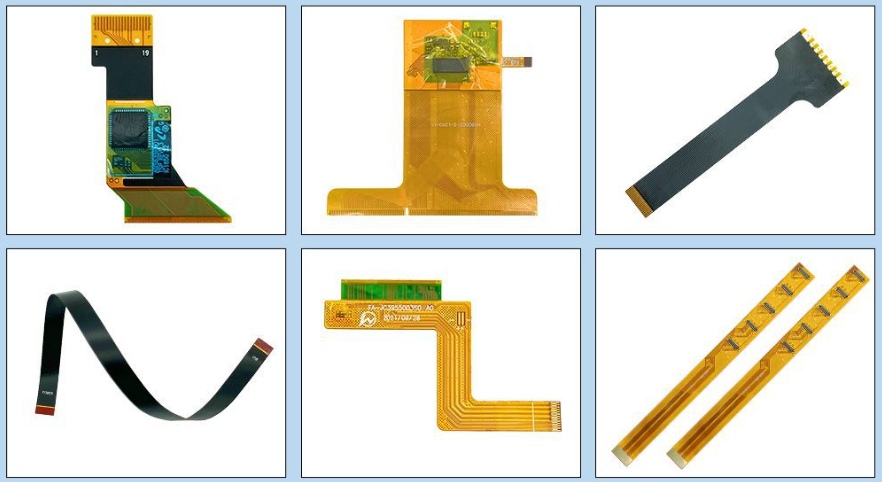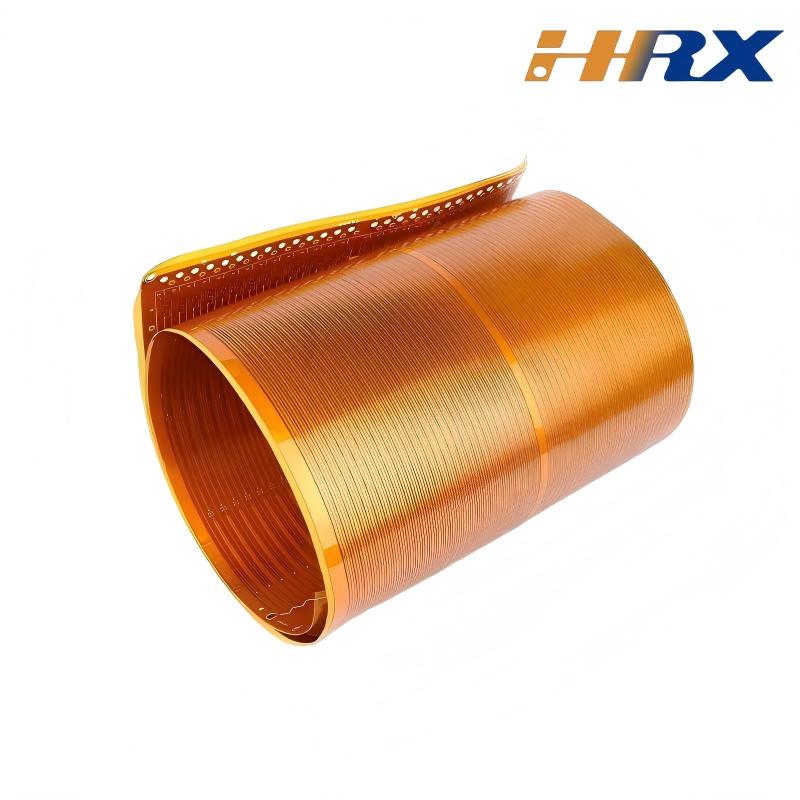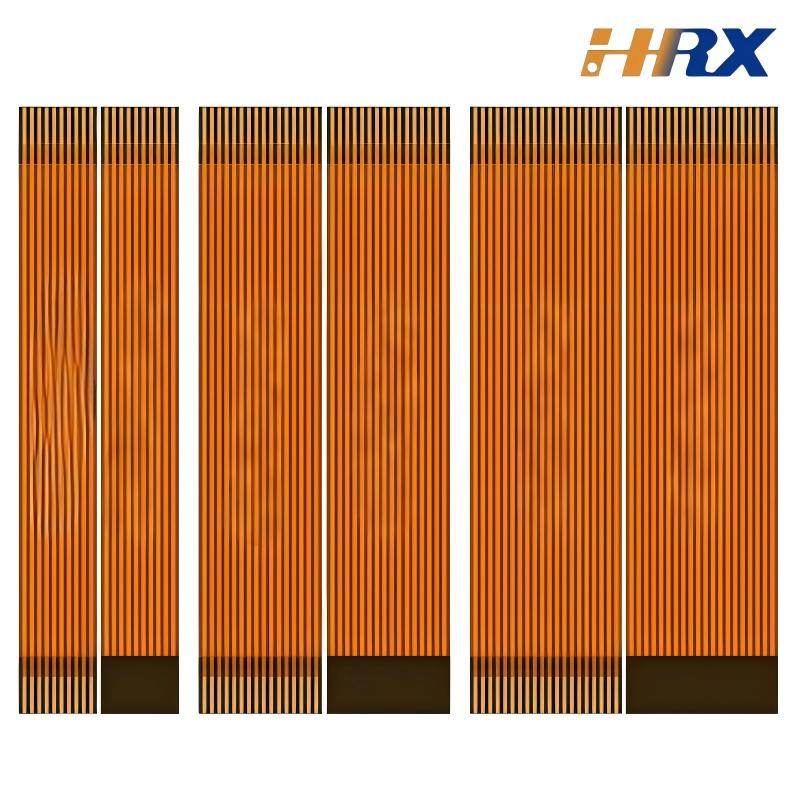Search
FPC Surface Treatment Technologies: Expert Solutions by Shenzhen Huaruixin Electronics (ODM/OEM)
- Sep 17,2025
-
Share
As a leading global FPC (Flexible Printed Circuit) ODM/OEM manufacturer, Shenzhen Huaruixin Electronics Co., Ltd. specializes in end-to-end solutions for FPC, PCB (Printed Circuit Board), and Rigid-Flex Printed Board design, development, and large-scale production. Surface treatment is a make-or-break step for FPC performance—directly influencing FPC solderability, corrosion resistance, bending endurance, and compatibility with fine-pitch components. Aligned with IPC standards and industry demands (automotive, medical, consumer electronics), our surface treatment processes are engineered to solve unique FPC challenges. Below is a detailed, our proprietary technologies, workflows, competitive edges, and critical considerations for FPC/PCB projects.

1. Proprietary FPC & PCB Surface Treatment Technologies
Our surface treatment portfolio is tailored to address the flexibility and precision requirements of flexible circuit substrates (e.g., polyimide, PET) while supporting high-reliability applications. We prioritize lead-free compliance, fine-pitch compatibility, and long-term environmental stability—FPC manufacturers.
1.1 Customized ENIG (Electroless Nickel/Immersion Gold) for FPC Reliability
FPC-Specific Advantages: Unlike generic ENIG, our process uses low-stress nickel plating (≤120 MPa) to preserve FPC bending performance (supports 10,000+ bending cycles at 1mm radius). We offer custom gold thickness (0.5μm–5μm)—critical for FPCs in medical devices (where 3–5μm gold ensures biocompatibility) and consumer electronics (0.5–1μm gold balances cost).
Processing Workflow:
Flexible Substrate Cleaning: Remove oil/residues from polyimide/PET FPCs via ultrasonic degreasing (avoids substrate damage).
Micro-Etching: Create micro-roughness on copper surfaces (1–2μm depth) to enhance nickel adhesion.
Electroless Nickel Deposition: Plate 8–15μm high-purity nickel (99.9%) at 60±2℃ (low temp protects FPC substrates).
Immersion Gold Plating: Deposit gold layer via displacement reaction (no external current, ideal for FPC fine lines).
Post-Treatment: Rinse with deionized water + hot air drying (prevents FPC warpage) → X-ray thickness testing (per IPC-4552).
1.2 Lead-Free HASL for FPC Solderability
FPC-Specific Advantages: Our double-sided hot air knife system ensures uniform solder coating (±8% thickness variation) on FPCs with 0.2mm fine lines—solving the common issue of solder bridging in flexible circuits. The Sn96.5Ag3.0Cu0.5 alloy (RoHS-compliant) delivers exceptional FPC thermal shock resistance (-55℃ to 125℃, 1000 cycles) for automotive and industrial FPCs.
Processing Workflow:
Flux Application: Use alcohol-based flux (compatible with FPC substrates) to prevent copper oxidation.
Solder Dipping: Submerge FPCs in 245±5℃ lead-free solder (controlled dip speed: 2–3cm/s to avoid flex damage).
Dual Hot Air Leveling: Remove excess solder with synchronized air knives (adjustable pressure: 0.3–0.5 MPa) → cool via nitrogen (prevents FPC discoloration).
1.3 Immersion Silver (ImAg) for Fine-Pitch FPCs
FPC-Specific Advantages: Optimized for FPCs with 0.4mm fine pitch (e.g., smartphone camera modules), our ImAg process uses a SAM (Self-Assembled Monolayer) passivation layer to extend tarnish resistance (≥6 months in 30℃/60% RH). This eliminates the need for protective films, reducing FPC assembly complexity and cost.
Processing Workflow:
Micro-Etching: Use sulfuric acid-based etchant (gentle on FPC substrates) to remove 0.5–1μm copper.
Silver Activation: Deposit 10–20nm silver seed layer (ensures uniform plating).
Immersion Silver Plating: Plate 50–150nm silver (no current, ideal for FPC delicate structures) → SAM coating (1–2nm thickness) → conductivity testing (≥5 S/m).
1.4 Hard Gold Plating for FPC Connectors
FPC-Specific Advantages: For FPC board-edge connectors (e.g., automotive infotainment FPCs) requiring repeated mating, our pulse hard gold plating (Au-Co alloy) delivers ≥180 HV hardness and 1–3μm thickness. The pulse technology ensures uniform plating on FPC connector tabs—even for irregular shapes—boosting connector wear resistance (500+ mating cycles).
Processing Workflow:
Acid Cleaning: Remove oxide from FPC connector surfaces (uses non-corrosive cleaner for polyimide).
Nickel Underplating: Deposit 5–10μm nickel (improves gold adhesion) → pulse hard gold plating (current density: 2–5 A/dm²).
Abrasion Testing: Validate wear resistance via IPC-TM-650 2.5.9 (no gold peeling after 500 cycles).
2. Competitive Edges: Why Choose Huaruixin for FPC Surface Treatment?
Our expertise in FPC-specific surface treatment sets us apart from generic PCB manufacturers—focused on solving pain points like substrate damage, bending failure, and fine-pitch compatibility.
2.1 FPC-Centric Process Optimization
Substrate Protection: All processes use low-temperature (≤60℃) plating and ultrasonic cleaning to avoid polyimide/PET degradation—critical for thin FPCs (25–50μm thickness).
Bending Endurance Testing: Every batch undergoes 10,000 bending cycles (1mm radius) to ensure surface plating (e.g., ENIG, ImAg) does not crack—addressing a top FPC failure mode.
3. Critical Considerations for FPC Surface Treatment
To maximize FPC performance, partner with our engineers to align surface treatment with your application’s needs.
3.1 Match Treatment to FPC Application
Medical FPCs: Choose ENIG (3–5μm gold) for biocompatibility and corrosion resistance (meets ISO 10993).
Automotive FPCs: Opt for hard gold plating (connectors) or lead-free HASL (solderability) to withstand -40℃ to 125℃ temperatures.
Consumer Electronics FPCs: ImAg balances cost and fine-pitch compatibility (ideal for 0.4mm pitch camera modules).
3.2 Ensure FPC Substrate Compatibility
Polyimide FPCs: Use low-temperature processes (≤60℃) to avoid glass transition (Tg ≥260℃ for polyimide).
PET FPCs: Avoid high-temperature HASL (≥240℃); ImAg or thin ENIG (≤1μm gold) is preferred.
3.3 Prioritize IPC & Industry Standards
All surface treatments must comply with IPC-J-STD-006 (solderability) and customer-specific requirements (e.g., military-grade FPCs need MIL-STD-883H compliance).

Partner with Huaruixin for FPC/PCB Surface Treatment
As a trusted FPC ODM/OEM manufacturer in Shenzhen, we deliver customized surface treatment solutions for flexible circuits, PCBs, and Rigid-Flex boards. Whether you need medical FPC ENIG plating, automotive FPC hard gold coating, or fine-pitch FPC ImAg treatment, our team ensures quality, compliance, and cost-effectiveness.
Learn More: Visit www.hrxfpc.com for FPC surface treatment guides, case studies, and industry insights (optimized for Google search).
Contact Us: Email sales@hrxfpc.com for personalized quotes, FPC sample requests, or technical consultations—our engineers respond within 24 hours.
Elevate your FPC performance with Huaruixin’s expert surface treatment!

Let’s talk! We’ll provide the perfect solution for you!
-
 Huaruixin Electronics mainly produces printed circuit boards as the core business, to provide customers with one-stop solutions for FPC/PCB production, components sourcing and Assembly.
Huaruixin Electronics mainly produces printed circuit boards as the core business, to provide customers with one-stop solutions for FPC/PCB production, components sourcing and Assembly. - WHAT WE DO — PCB Design Solutions — Flex PCB Production — Components Sourcing — FPC&PCB Assembly
- PRODUCTS — Single Sided Flexible Circuits — Double Sided Flexible Circuits — Multilayer Flexible Cirucits — Rigid-Flex Circuits — FPC Assembly — PCB Assembly
- CAPABILITY — FPC Capability — Rigid-Flex Capability — PCB Capability — Assembly Capability
- Copyright © 2024 Shenzhen Huaruixin Electronics Co., Ltd. All Rights Reserved.
- Design By BONTOP


